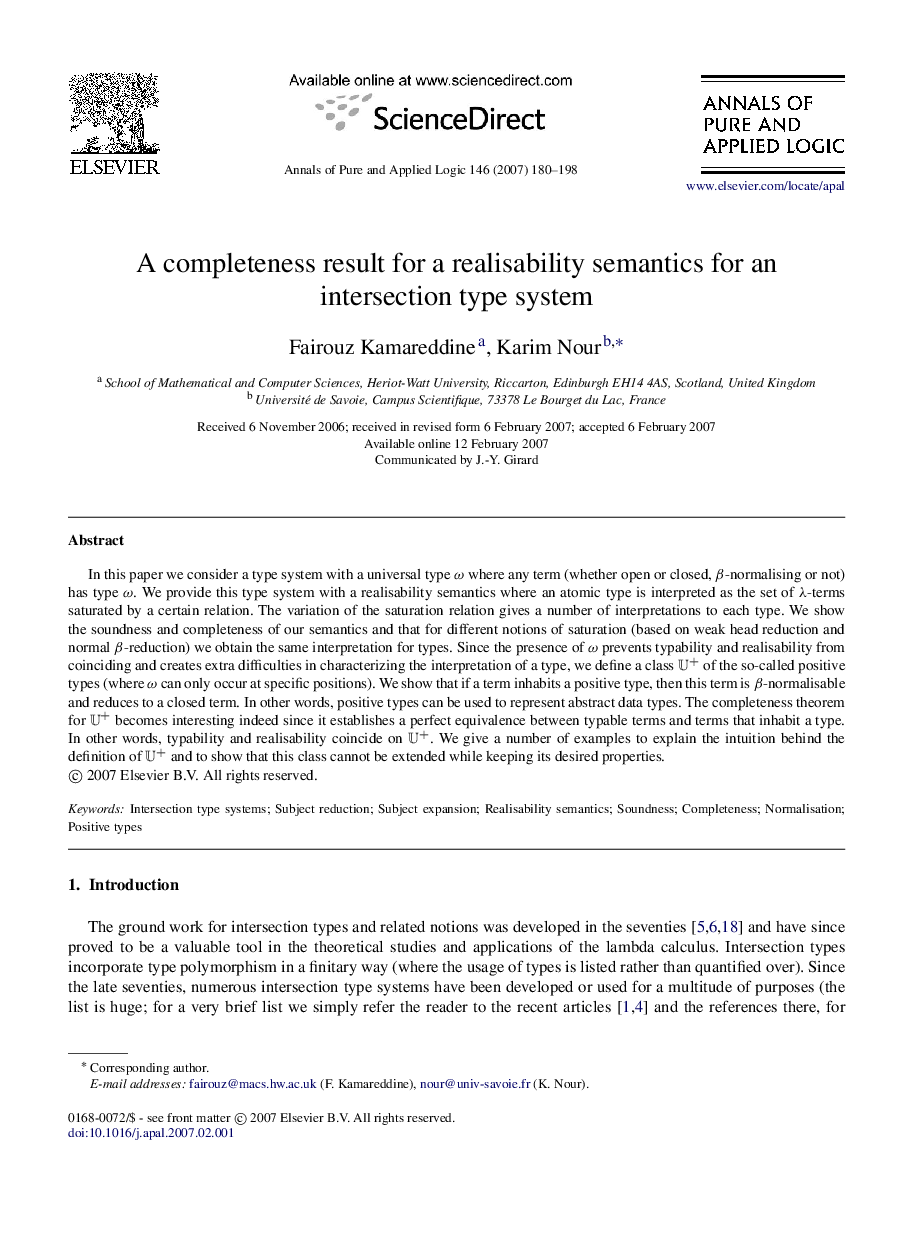| کد مقاله | کد نشریه | سال انتشار | مقاله انگلیسی | نسخه تمام متن |
|---|---|---|---|---|
| 4662383 | 1633542 | 2007 | 19 صفحه PDF | دانلود رایگان |

In this paper we consider a type system with a universal type ω where any term (whether open or closed, β-normalising or not) has type ω. We provide this type system with a realisability semantics where an atomic type is interpreted as the set of λ-terms saturated by a certain relation. The variation of the saturation relation gives a number of interpretations to each type. We show the soundness and completeness of our semantics and that for different notions of saturation (based on weak head reduction and normal β-reduction) we obtain the same interpretation for types. Since the presence of ω prevents typability and realisability from coinciding and creates extra difficulties in characterizing the interpretation of a type, we define a class U+ of the so-called positive types (where ω can only occur at specific positions). We show that if a term inhabits a positive type, then this term is β-normalisable and reduces to a closed term. In other words, positive types can be used to represent abstract data types. The completeness theorem for U+ becomes interesting indeed since it establishes a perfect equivalence between typable terms and terms that inhabit a type. In other words, typability and realisability coincide on U+. We give a number of examples to explain the intuition behind the definition of U+ and to show that this class cannot be extended while keeping its desired properties.
Journal: Annals of Pure and Applied Logic - Volume 146, Issues 2–3, May 2007, Pages 180-198